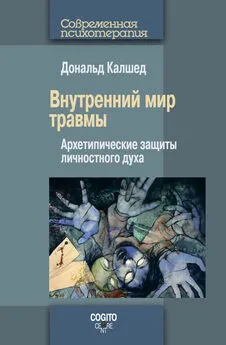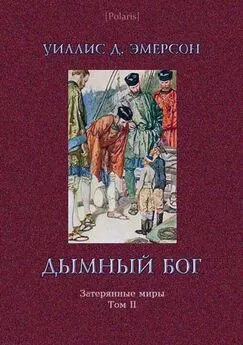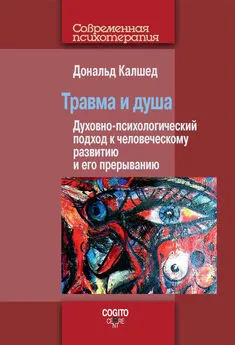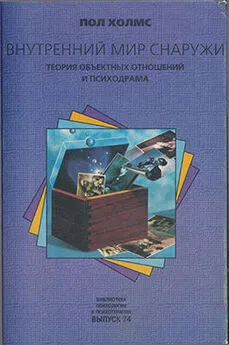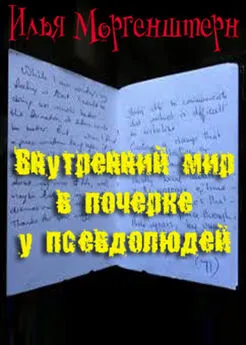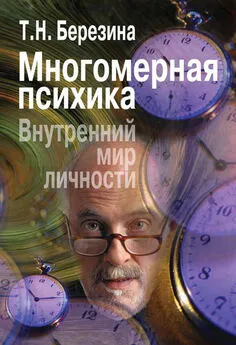Дональд Калшед - Внутренний мир травмы. Архетипические защиты личностного духа
- Название:Внутренний мир травмы. Архетипические защиты личностного духа
- Автор:
- Жанр:
- Издательство:Литагент «Когито-Центр»881f530e-013a-102c-99a2-0288a49f2f10
- Год:2015
- Город:Москва
- ISBN:978-0-415-12329-7, 978-5-89353-440-5
- Рейтинг:
- Избранное:Добавить в избранное
-
Отзывы:
-
Ваша оценка:
Дональд Калшед - Внутренний мир травмы. Архетипические защиты личностного духа краткое содержание
В книге «Внутренний мир травмы» Дональд Калшед исследует мир сновидений и фантазий, который раскрывается в терапии людей, тяжело пострадавших в результате трагических событий их жизни. Он показывает, как защитные меры психики, призванные оберегать «неуничтожимый дух» человеческой личности, при некоторых обстоятельствах принимают обличье ужасных фигур, преследующих Эго в сновидениях и грезах. В книге приводится богатый клинический материал для иллюстрации действия комплекса ранних защит, или системы самосохранения. Предпринята попытка синтеза психоаналитических концепций психической травмы и ранних защит, созданных современными представителями теории объектных отношений, с классическим юнгианским подходом, основанным на идеях архетипического мира коллективного бессознательного и процесса индивидуации.
Внутренний мир травмы. Архетипические защиты личностного духа - читать онлайн бесплатно ознакомительный отрывок
Интервал:
Закладка:
1. Данная версия этой сказки взята автором из: Complete Grimm’s Fairy Tales (1972), где она располагается под номером 12.
1. Версия мифа об Эроте и Психее заимствована автором из сокращенного текста Нойманна (Neumann, 1956). (рус. пер., по которому приведены цитаты: Апулей. «Метаморфозы» и другие сочинения. / Под общей редакцией С. Аверинцева, С. Апта, М. Гаспарова, А. Тахо-Годи, С. Шерейнского и В. Ярхо; сост. и научная подготовка текста М. Гаспарова. М.: Худ. лит., 1988; в круглых скобках указана нумерация абзацев этого издания).
1. Данная версия сказки взята автором из «Complete Grimm’s Fairy Tales» (1972), где она располагается под номером 46 рус. пер. по изд.: Сказки, собранные Братьями Гримм. Пер. с нем. и ред. П. Н. Полевого. СПб.: Издание А. Ф. Маркса, 1901. С. 14 4 –14 8.
1. Приведенная версия сказки является сокращенным вариантом пересказа Гвина Джонса в сборнике «Scandinavian Legends and Flok-tales» (1975) С. 3–15. В скобках после прямых цитат указаны страницы этого текста.
Литература
Anonymous. (1994) Body Work, in To Your Health: The Magazine of Healing and Hope 6 (8).
Asper, К. (1991) Ficher’s Bird: Illustrations of the Negative Animus and Shadow in Persons with Narcissistic Disturbances, in M. Stein and L. Corbett (eds) Psyche’s Stories: Modem Jungian Interpretations of Fairy Tales. Vol. I. Wilmette. Ill.: Chiron Publications: 121–140.
Balint, M. (1979) The Basic Fault: Tlierapeutic Aspects of Regression, Evasion. Ill: Northwestern Universities Press. Beebe, J. (1993) Comment to Issue on Borderline Patients, Journal of Analytical Psychology 38: 101–103. Bergler. E. (1959) Principles of Self-Damage, Madison, Conn.: International Universities
Bion, W. (1959) Attacks on Linking, in W. Bion Second Thoughts, New York: Jason.
Bion, W. (1962a) Learning from Experience. London: Heinemann; reprinted in paperback, Maresfield Reprints. London: H. Karnac Books (1984).
Bion, W. (1962b) A Theory of Thinking, in W. Bion Second Thoughts. New York: Jason Aronson (1967).
Blatt, S. (1995) The Destructiveness of Perfectionism, American Psychologist 50 (12): 1003–1020.
Bollas, С. (1987) The Shadow of the Object, New York: Columbia University Press. Braun. B. G. (1988) The BASK Model of Dissociation, Dissociation 1:16–23.
Bunster, J. (1993) The Patient Difficult to Reach, Journal of Analytical Psychology 38 (1):37–44.
Cooper, J. C. (1978) Illustrated Encyclopaedia of Traditional Symbols, London: Thames & Hudson.
Corrigan, E. and Gordon, P. E. (eds) (1995) The Mind Object, New Jersey: Jason Aronson Inc.
Davies, J. and Frawley, M. (1994) Treating the Adult Survivor of Childhood Sexual Abuse A Psychoanalytic Perspective, New York: Basic Books.
Early, E. (1993) The Raven’s Return: The Influences of Psychological Trauma on Individuals and Culture, Wllmette, Ill.: Chiron Publications.
Edinger, E. (1972) Ego and Archetype, New York: Penguin Books.
Edinger, E. (1985) Anatomy of the Psyche: Alchemical Symbolism in Psychotherapy. L, Salle, Ill.: Open Court.
Edinger. E. (1986) The Bible and the Psyche. Toronto: Inner City Books.
Edinger, E. (1992) Transformation of the God-Image: An Elucidation of Jung’s Answer to Job, Toronto: Inner City Books.
Eigen, M. (1995) Mystical Precocity and Psychic Short Circuits, in E. Corrigan and P. E. Gordon (eds) The Mind Object. New Jersey: Jason Aronson Inc: 109–134.
Ellenbergcr, H. (1970) The Discovery of the Unconscious. New York: Basic Books.
Fairbairn, R. (1981) Psychoanalytic Studies of the Personality. London: Routledge and Kegan Paul.
Ferenczi, S. (1933) – Confusion of Tongues Between Adults and the Child, in M– Balint (ed.) Final Contributions to the Problems and Methods of Psycho-Analysis. New York: Brunner/Mazel: 156–167.
Ferenczi, S. (1988) The Clinical Diary of Sander Ferenczi. ed. J. Dupont Cambridge Mass., Harvard University Press.
Fordham, M. (1974) Defences of the Self, Journal of Analytical Psychology 19.
Fordhain, M. (1976) The Self and Autism ( Library of Analytical Psychology, vol. 3). London: Heinemann.
Forsyth, N. (1987) The Old Enemy: Satan and the Combat Myth. Princeton, N. J.: Princeton University Press.
Freud, S. (1966) The Standard Edition of the Complete Psychological Works of Sigmund Freud. London: Hogarth Press, 24 vols. Communication. Standard Edition III.
Freud, S. (1894) The Neuro-Psychoses of Defence, Standard Edition III.
Freud, S. (1896) The Aetiology of Hysteria, Standard Edition III.
Freud, S. (1917) Mourning and Melancholia, Standard Edition XIV.
Freud, S. 1919) The Uncanny, Standard Edition XVII.
Freud, S. (1920a) Civilization and its Discontents, Standard Edition XXI.
Freud, S. (1920b) Beyond the Pleasure Principle, Standard Edition XVIII.
Freud, S. (1923) The Ego and the Id, Standard Edition XIX.
Freud, S. (1924) The Economic Problem of Masochism, Standard Edition XIX.
Freud. S. (1926) Inhibitions. Symptoms and Anxiety. Standard Edition XX.
Freud, S. (1933) New Introductory Lectures. Standard Edition XXII.
Freud, S. (1937) Analysis Terminable and Interminable, Standard Edition XXIII.
Freud, S. (1954) The Origins of Psychoanalysis: Letters to Wilhelm Fliess, Trails. Mosbacher and Strachev. New York: Basic Books.
Garfield, D. (1995) Unbearable Affect. New York: John Wiley and Sons Inc.
Goethe, J. W. von. (1941) Faust, trans. G. M. Priest, New York: Knopf.
Gordon, R. (1987) Masochism: The Shadow Side of the Archetypal Need to Venerate and Worship, Journal of Analytical Psychology, 32 (3): 227–240.
Graves, R. (1955) The Greek Myths, New York: Penguin.
Grotstein, J. (1981) Splitting and Projective Identification, New York: Jason Aronson.
Grotstein, J. (1984) Forgery of the Soul, in C. Nelson and M. Eigen (eds) Evil. Self and Culture. New York: Human Sciences Press: 203–226.
Grotstein, J. (1987) An Object-relations Perspective on Resistance in Narcissistic Patients, in J. Grostein Techniques of Working with Resistance, New Yolk: Jason Aronson: 317–339.
Guntrip, H. (1969) Schizoid Phenomena, Object Relations and the Self, New York: International Universities Press.
Gunttip, H. (1971) Psychoanalytic Theory. Therapy and the Self. New York: Basic Books.
Harpur, P. (1994) Daimonic Reality: A Field Guide to the Other World, New York: Viking-Penguin Books.
Haule, J. (1992) Pilgrimage of the Heart: The Path of Romantic Love, Boston, Mass.: Shambhala.
Henderson, J. (1990) Shadow and Self, Wlmette, Ill.: Chiron Publication.
Hill, D (1970) The Trickster, in R. Cavendish (ed.) Man, Myth and Magic: An Illustrated Encyclopedia of the Supernatural, vol. 21. New York: Cavendish Corporation: 2881–2885.
Hillman, J. (1972) The Myth of Analysis, Evanston, 111.: Northwestern University Press. Hillman. J. (1979) Senex and Puer, in Puer Papers. Dallas, Тех.: Spring Publications:3–53.
Hillman, J. (1983) The Bad Mother, Spring. Dallas, Тех.: Spring Publications: 165–181.
Hubback, J. (1991) – The Changing Person and the Unchanging Archetype, in M. Matoon (ed.) Proceedings of the Eleventh International Congress for Analytical Psychology. Paris. 1989. Einsedein: Daimon Verlag: 35–50.
Jones, G, (1975) Prince Lindworm, as retold in Scandinavian Legends and Folk-tales, Oxford: Oxford University Press: 3–15.
Jung, С. G. (1963) Memories, Dreams, Reflections, New York: Random House. Jung, C. G. (1973) Letters Vol I. 1906–1950. ed. G. Adler. Princeton, N. J.: Princeton Jung, C. G. (l953-79) The Collected Works (Bollingen Series XX), trans. R. F. C. Hull: eds. H. Read. M. Fordham. and G. Adier, Princeton, N. J.: Princeton University Press. 20 vols.
June, C. G. (1904) Studies in Word Association, Collected Works 2.
Jung, C. G. (1907) The Psychology of Dementia Praecax. Collected Works 3.
Jung, C. C. (1912a) The Theory of Psychoanalysis. Collected Works 4.
Jung, C. G. (l912b) Symbols of Transformation, Collected Works 5.
Jung, C. G. (1913) On the Doctrine of Complexes. Collected Works 2.
Jung, C. G. (1916) The Psychology of the Unconscious. Collected Works 7.
Jung, C. G. (1925) Notes on the Seminar Given in 1925. ed. Win. McGuire, Princeton, N J.: Princeton University Press (1989).
Jung, C. G. (1926) Spirit and Life. Collected Works 8.
Jung, C. G. (1928a) The Therapeutic Value of Abreaction. Collected Works 16.
Jung, C. G. (1928b) The Psychological Foundations of Belief in Spirits. Collected Works 8.
Jung, C. G. (1928c) Mental Disease and the Psyche, Collected Works 3.
Jung, C. G. (1934a) The Relations Between the Ego and the Unconscious, Collected Works 7.
Jung, C. G. (1934b) Review of the Complex Theory. Collected Works 8.
Jung, C. G. (1937a) A Farewell Speech, given to the Analytical Psychology Club of New York on Oct. 26,1937 (unpublished). Available in the Krisnne Mann Library, 28 E. 39th St., New York, N. Y. 10016.
Jung, C. G. (1937b) Psychology and Religion. Collected Works 11.
Jung, C. G. (1946) Psychology of the Transference, Collected Works 16.
Jung, C. G. (1947) On the Nature of the Psyche Collected Works, 8.
Jung, C. G. (1949) The Psychology of the Child Archetype, Collected Works 9/1.
Jung, C. G. (1951) Aion. Collected Works 9/2.
Jung, C. G. (1952) Answer to Job. Collected Works 11.
Jung, C. G. (1954) On the Nature of the Psvche, Collected Works 8.
Jung, C. G. (1955) Mysierium Coniunctionis, Collected Works 14.
Jung, C. G. (1958) Schizophrema. Collected Works 3.
Jung, C. G. (1977) C. G– Jung Speaking, ed. Wm. McGuire and R. F. C. Hull, Princeton N. J.: Princeton University Press.
Jung, C. G. (1989) Notes of the Seminar Given in 1925, ed. Wm. McGuire, Princeton N. J.: Princeton University Press.
Читать дальшеИнтервал:
Закладка:
